Conclavoscope - Cardinal Willem Jacobus Eijk
Cardinal Profile and Assessment

Dutch cardinal, Archbishop of Utrecht, physician and bioethicist, known for his very conservative positions on bioethical and moral issues, and his defense of traditional doctrine.
| Criterion | Tendency |
|---|---|
| Moral doctrine | Very conservative |
| Liturgy | Very conservative |
| Sociopolitical | Conservative |
| Relationship with Pope Francis | Conservative |
| Dialogue | Centrist |
| Communication | Moderately conservative |
| Overall tendency | Conservative |
Born on June 22, 1953, in Duivendrecht, Netherlands, Willem Jacobus Eijk is one of the few European cardinals to combine rigorous scientific training with solid theological expertise. Before entering the seminary, he studied medicine at the University of Amsterdam and briefly practiced as a physician. He then obtained a doctorate in medical bioethics from the University of Leiden, followed by a doctorate in philosophy from the Pontifical University of Saint Thomas Aquinas in Rome.
Ordained a priest in 1985 for the diocese of Roermond, he taught medical ethics and moral theology, while serving on the board of the Dutch pro-life medical association. In 1999, he was appointed Bishop of Groningen-Leeuwarden, then in 2007, Metropolitan Archbishop of Utrecht. He was created a cardinal by Benedict XVI at the consistory of February 18, 2012. (Dutch Willem Jacobus Eijk Photos and Premium High Res Pictures - Getty ...)
Cardinal Eijk is a member of several Roman dicasteries, including the Congregation for the Doctrine of the Faith and the Dicastery for Health. He is also known for his public statements on bioethical issues, sexual morality, and doctrinal fidelity, particularly in the context of a highly secularized Dutch Church.
Cardinal Eijk is clearly identified as a representative of the conservative current. He has expressed criticism of the synodal process in Germany and of certain orientations of the Synod on Synodality, warning against the risks of doctrinal confusion and ecclesial fragmentation. He advocates for the centrality of the Roman magisterium and strict fidelity to Catholic doctrine.
Although not among the most high-profile figures in the College of Cardinals, Eijk enjoys a certain esteem among cardinals attached to tradition and doctrinal clarity. His election by Benedict XVI places him in the line of cardinals appointed for their fidelity to the magisterium. However, his influence remains limited compared to more central figures in the Curia or in major global dioceses.
Cardinal Eijk is a staunch defender of traditional Catholic moral teachings. He has consistently opposed abortion, labeling it an 'intrinsic evil,' and has been critical of gender theory, viewing it as a threat to Christian anthropology and the proclamation of the Gospel. He also maintains that same-sex relationships cannot be blessed, as they contradict God's order of creation.
Cardinal Eijk emphasizes the importance of traditional liturgy and doctrine. He has warned against deviations from the universal Church's teachings and liturgical practices, drawing parallels between contemporary synodal discussions and past events that led to secularization in the Netherlands.
While Cardinal Eijk has addressed societal issues, his primary focus remains on spiritual and doctrinal matters. He has highlighted the challenges of secularization and the need for the Church to maintain its teachings amidst societal changes.
Cardinal Eijk has expressed concerns about certain decisions made during Pope Francis's pontificate. He criticized the lack of clarity in the Pope's response to the German bishops' proposal on intercommunion and has called for definitive teachings on contentious issues to prevent confusion among the faithful.
Cardinal Eijk acknowledges the importance of interreligious dialogue but emphasizes that it should not compromise core Catholic doctrines. He has participated in discussions but remains cautious about theological relativism.
Known for his clear and direct communication style, Cardinal Eijk does not shy away from addressing controversial topics. He emphasizes the need for the Church to provide unambiguous teachings to guide the faithful in a secularized society.
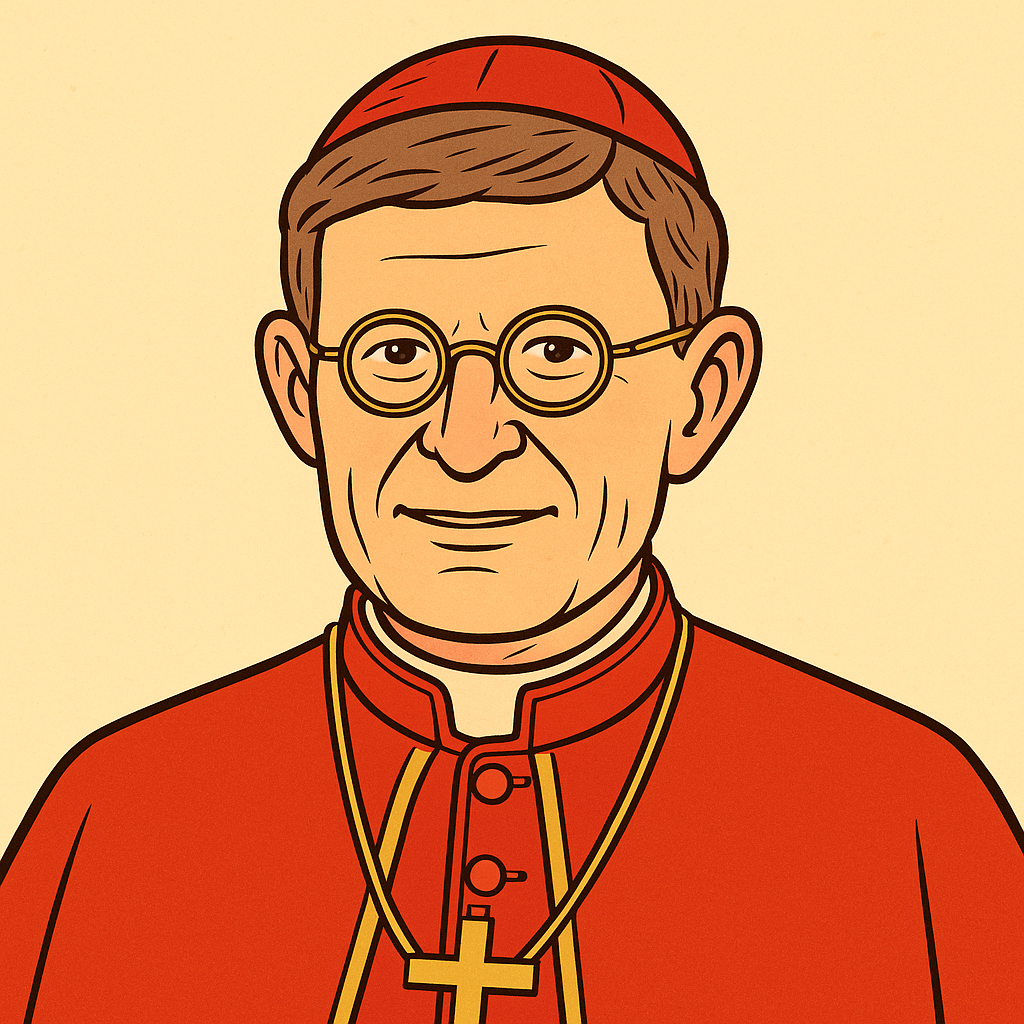
Germany
German cardinal, Archbishop of Cologne, known for his conservative positions and controversial leadership, particularly in handling sexual abuse and his opposition to certain reforms.
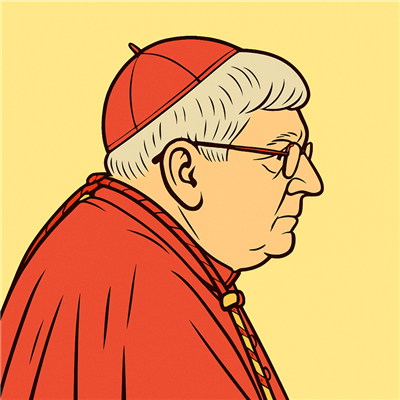
Canada
Canadian cardinal, Archbishop Emeritus of Toronto, known for his conservative positions on issues of moral doctrine and his commitment to defending religious freedom.
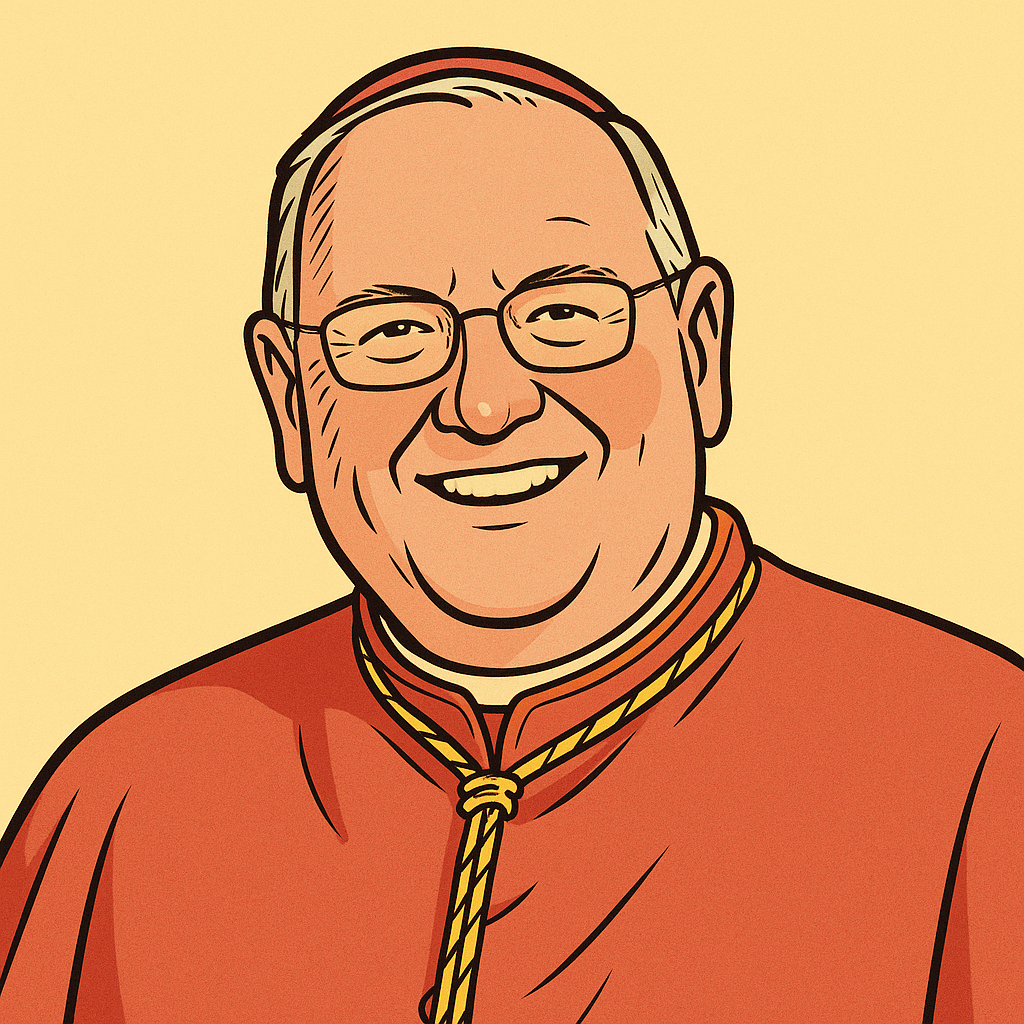
United States
American cardinal, Archbishop of New York, known for his media charisma and balanced leadership, combining social commitment and defense of Catholic tradition and moral values.
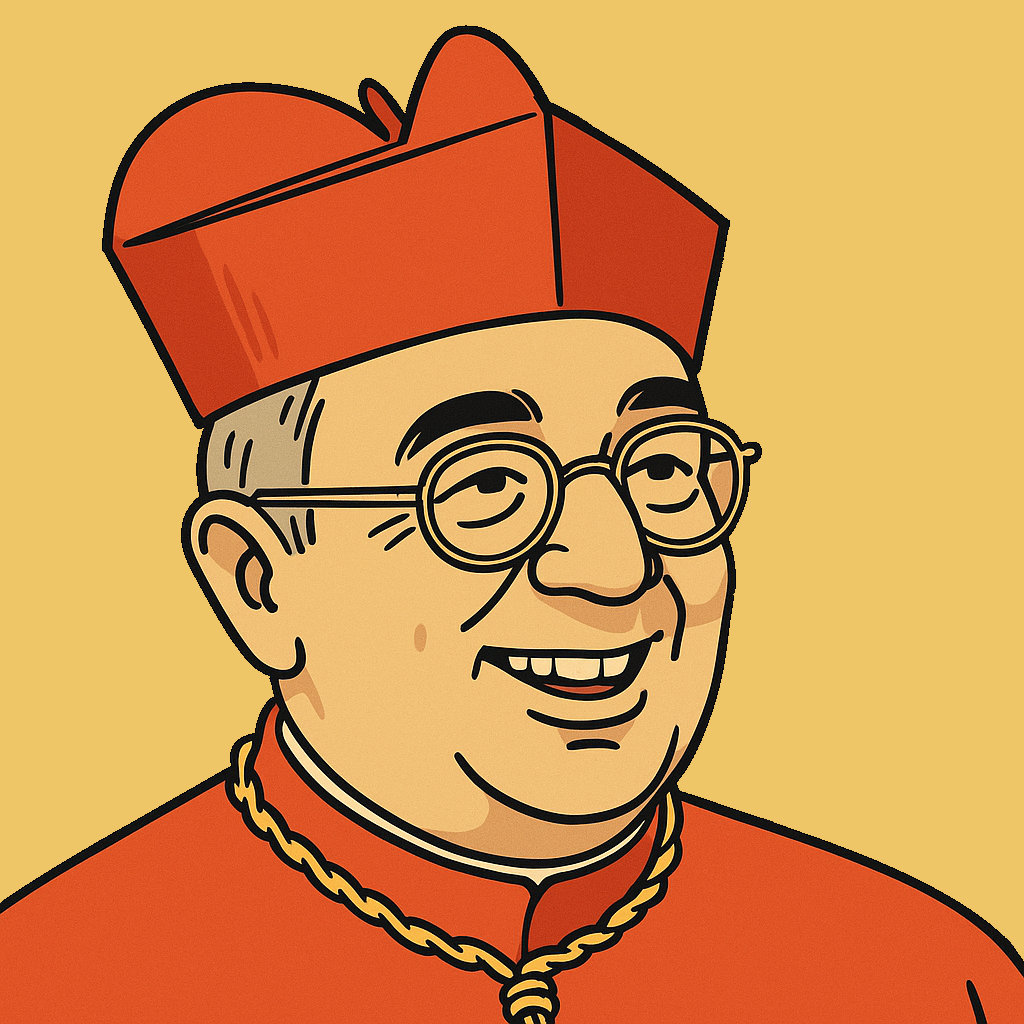
Italy
age: 72
Italian cardinal, former vicar general of the pope for the diocese of Rome, known for his balance between liturgical tradition and moderate pastoral openness.
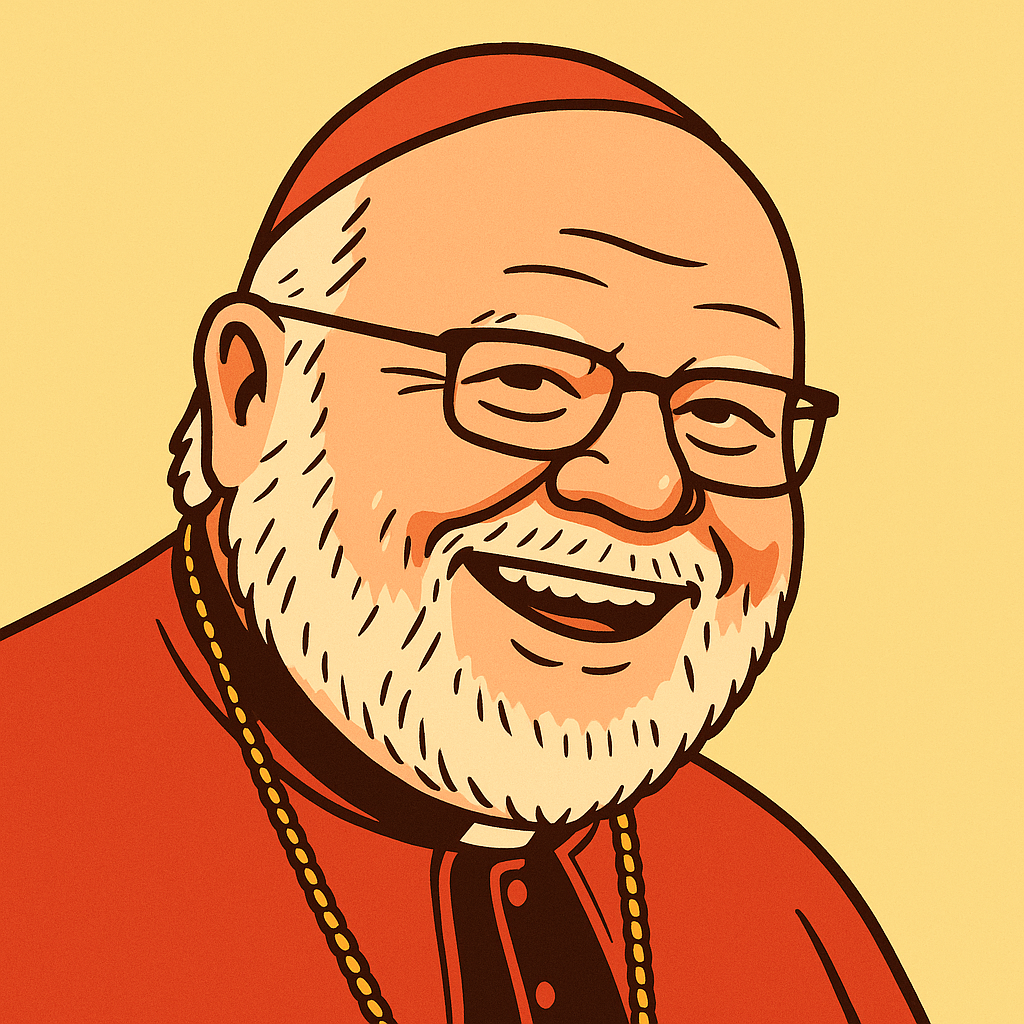
Germany
age: 72
German cardinal, Archbishop of Munich and Freising, known for his progressive positions and influential role in Church reform, particularly during the German synodal path and on economic issues.
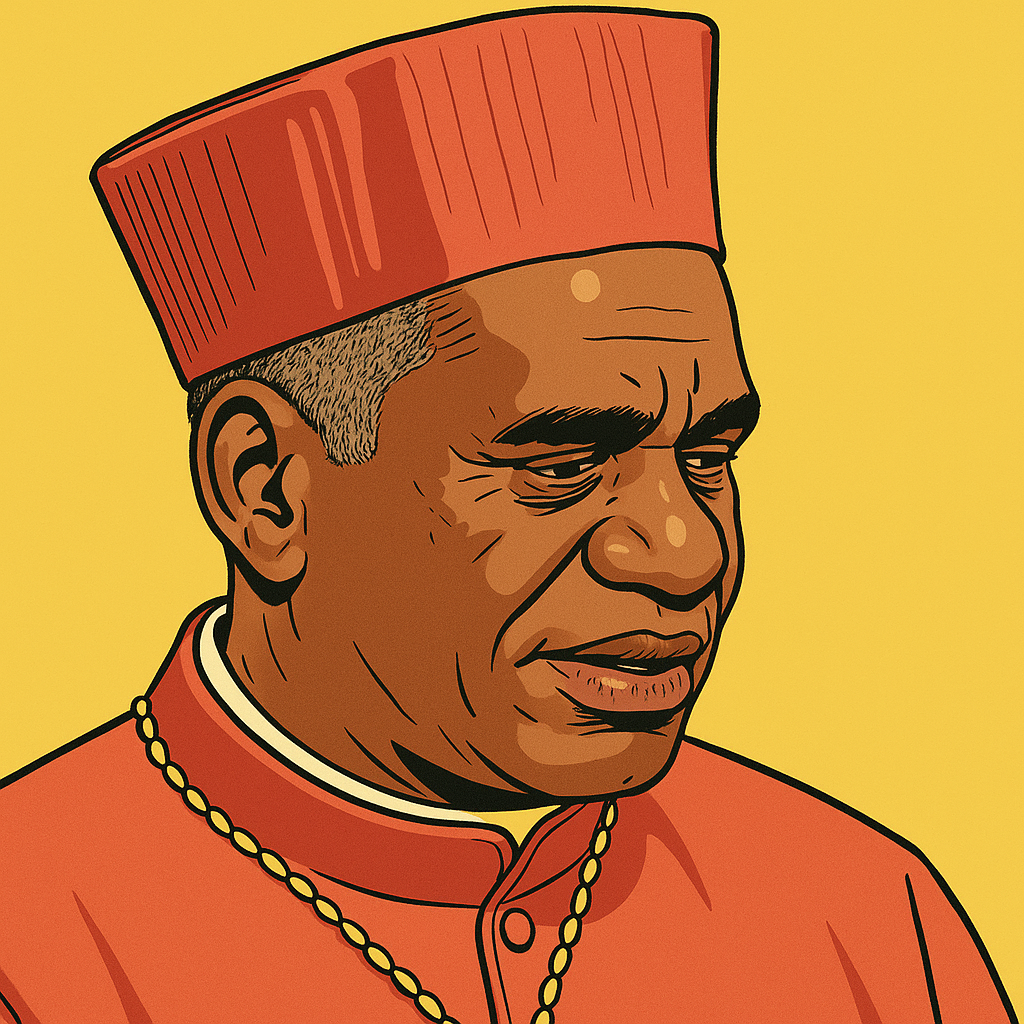
Madagascar
age: 71
Malagasy cardinal, known for his traditionalist positions, his attachment to classical liturgy, and his vigorous defense of Catholic moral doctrine.
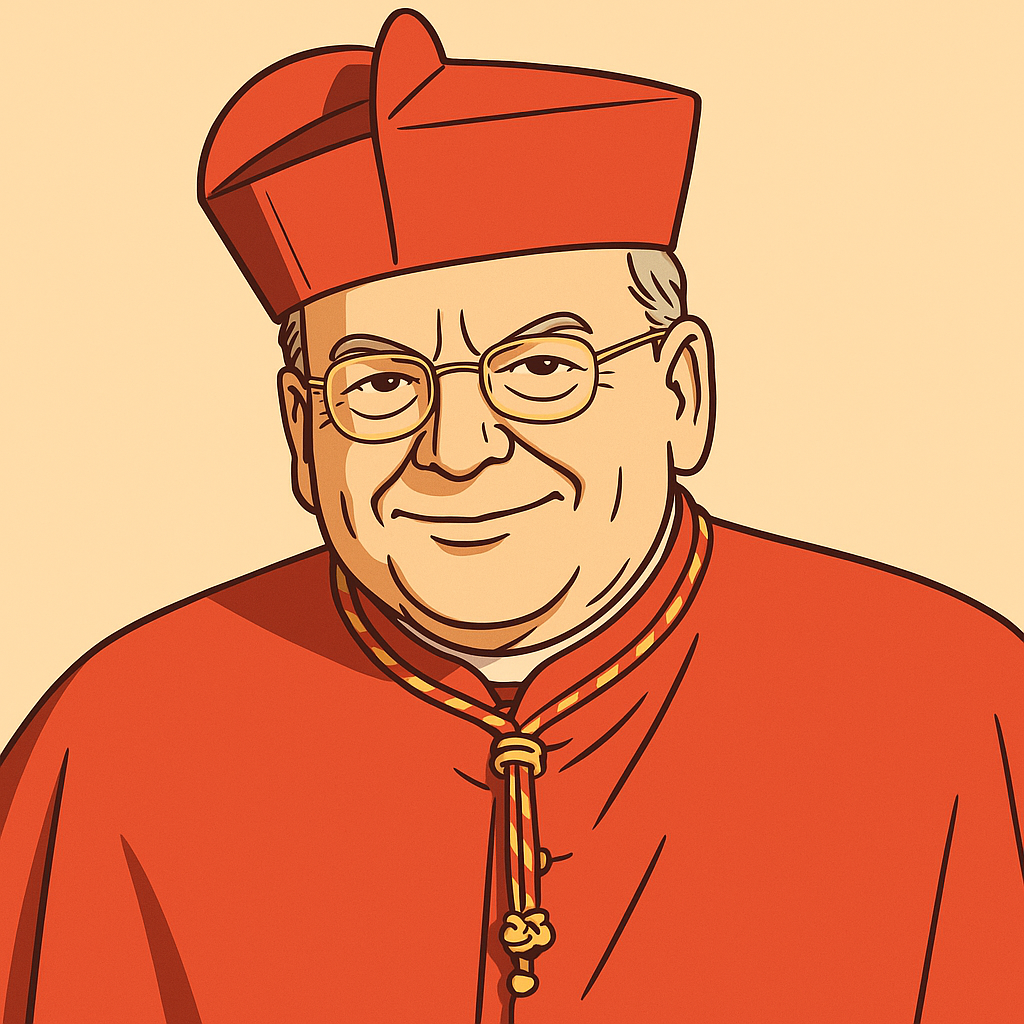
United States
American cardinal, patron of the Order of Malta, known for his very conservative positions on liturgy and doctrine, and his open opposition to certain orientations of Pope Francis' pontificate.

Guinea
Guinean cardinal, former prefect of the Dicastery for Divine Worship, known for his very conservative positions on liturgy and doctrine, and his deep attachment to Catholic tradition.
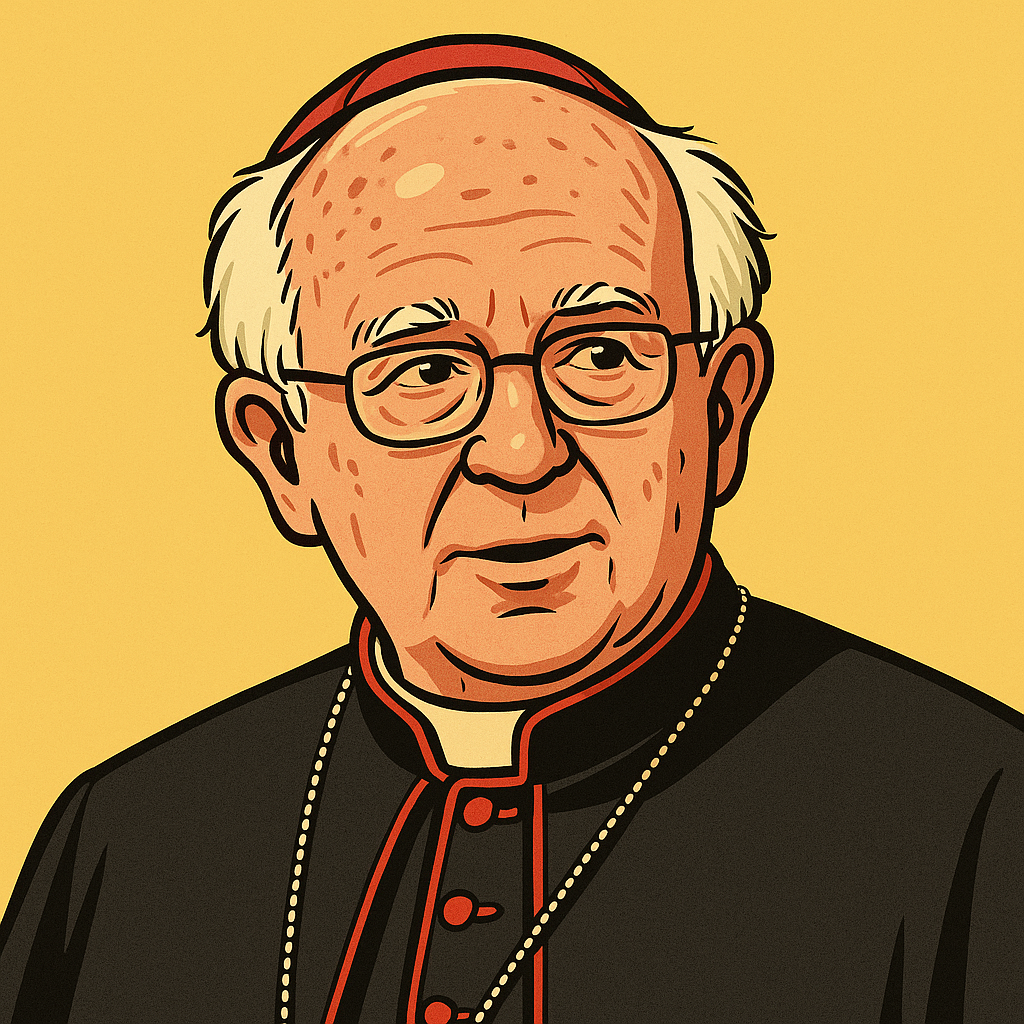
Spain
Spanish cardinal who is very conservative, nicknamed "the little Ratzinger," known for his traditionalist positions on liturgy and morality, and his vigorous defense of Catholic doctrine.

Spain
Spanish cardinal who is very conservative, nicknamed "the little Ratzinger," known for his traditionalist positions on liturgy and morality, and his vigorous defense of Catholic doctrine.
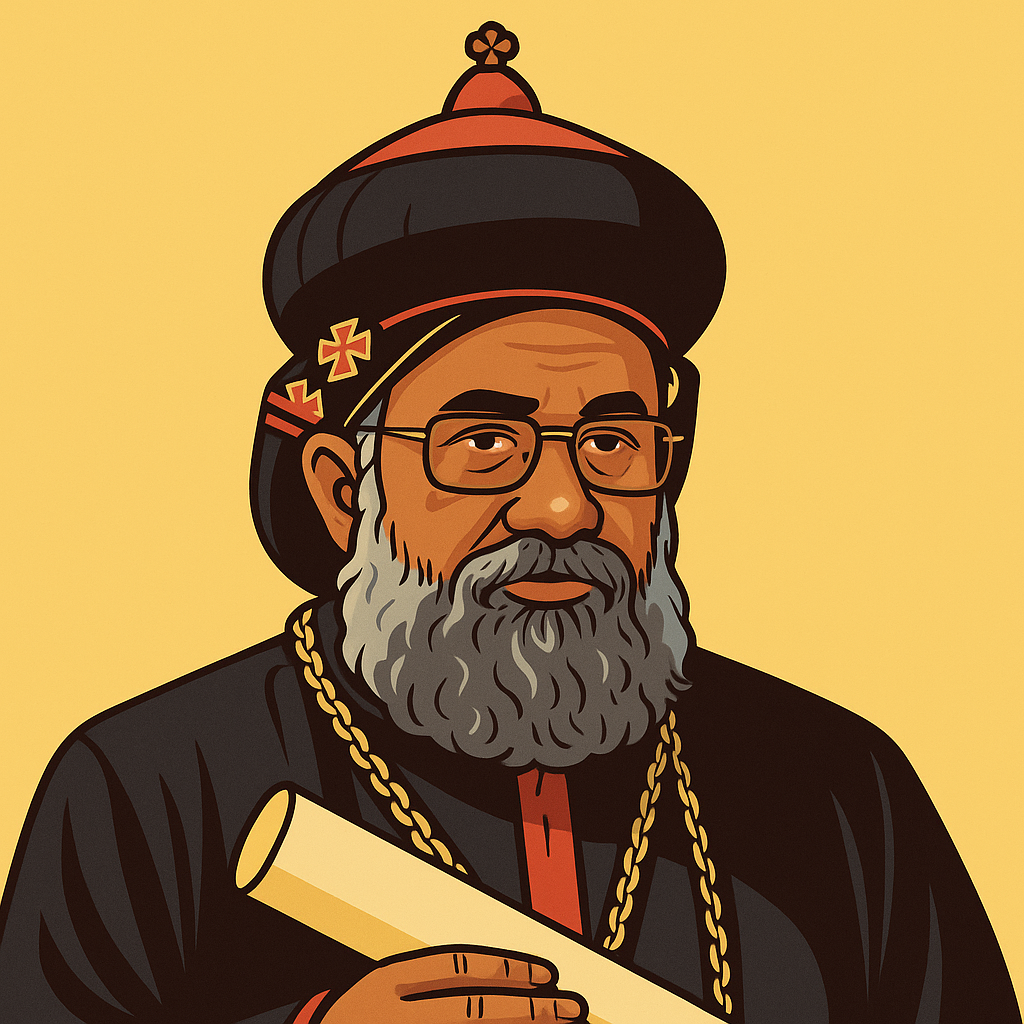
India
Indian cardinal of Syro-Malankara rite, known for his attachment to the Eastern traditions of the Church and his defense of traditional moral doctrine.
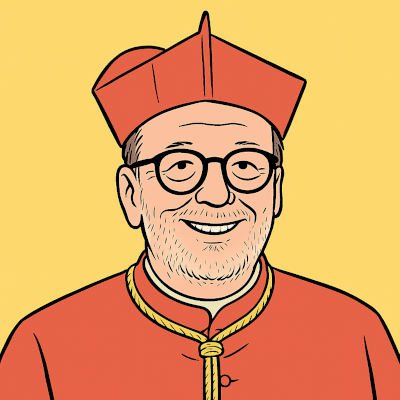
Italy
Italian cardinal, former apostolic nuncio, known for his diplomatic expertise and knowledge of Eastern Churches, combining liturgical tradition and openness to dialogue.
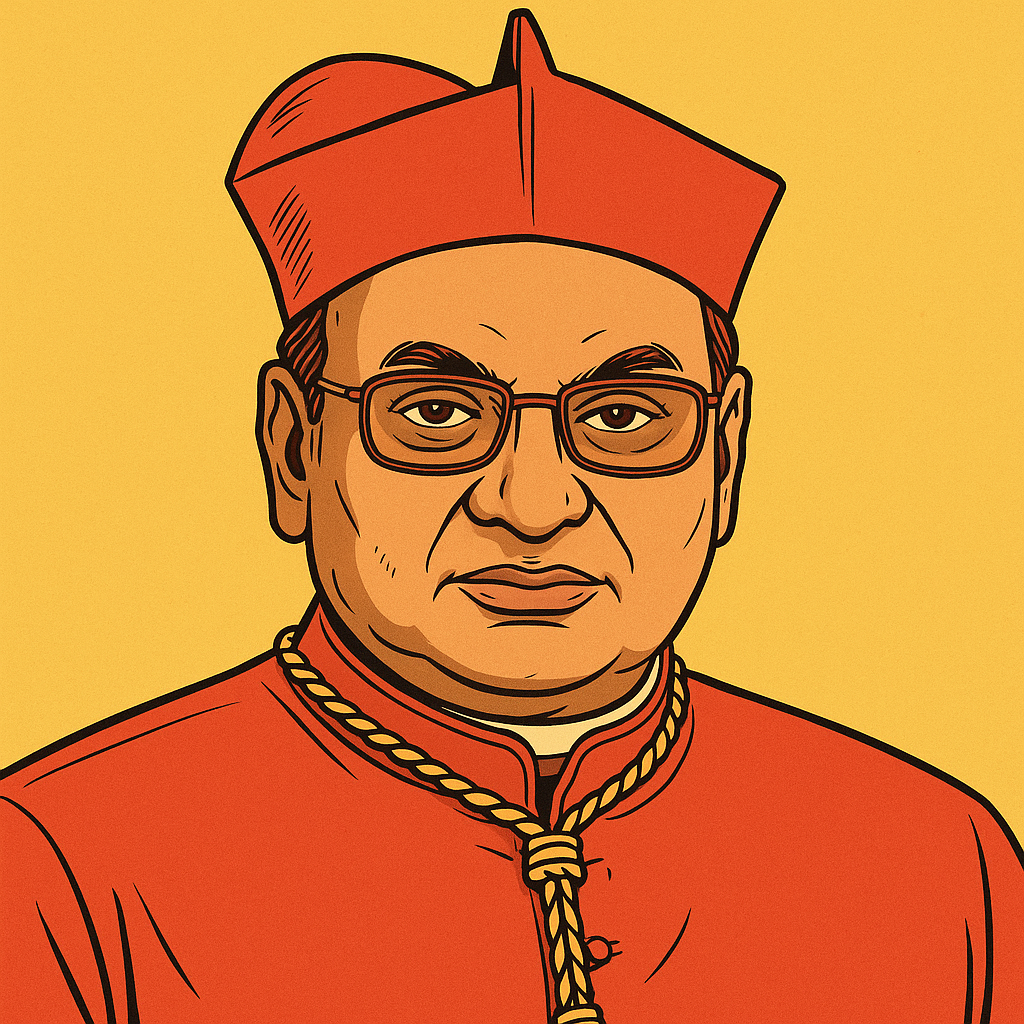
Sri Lanka
Sri Lankan cardinal with strong traditionalist positions, known for his attachment to traditional liturgy and defense of Catholic doctrine.

Germany
German cardinal, former prefect of the Congregation for the Doctrine of the Faith, known for his very conservative positions and vigorous defense of traditional doctrine.
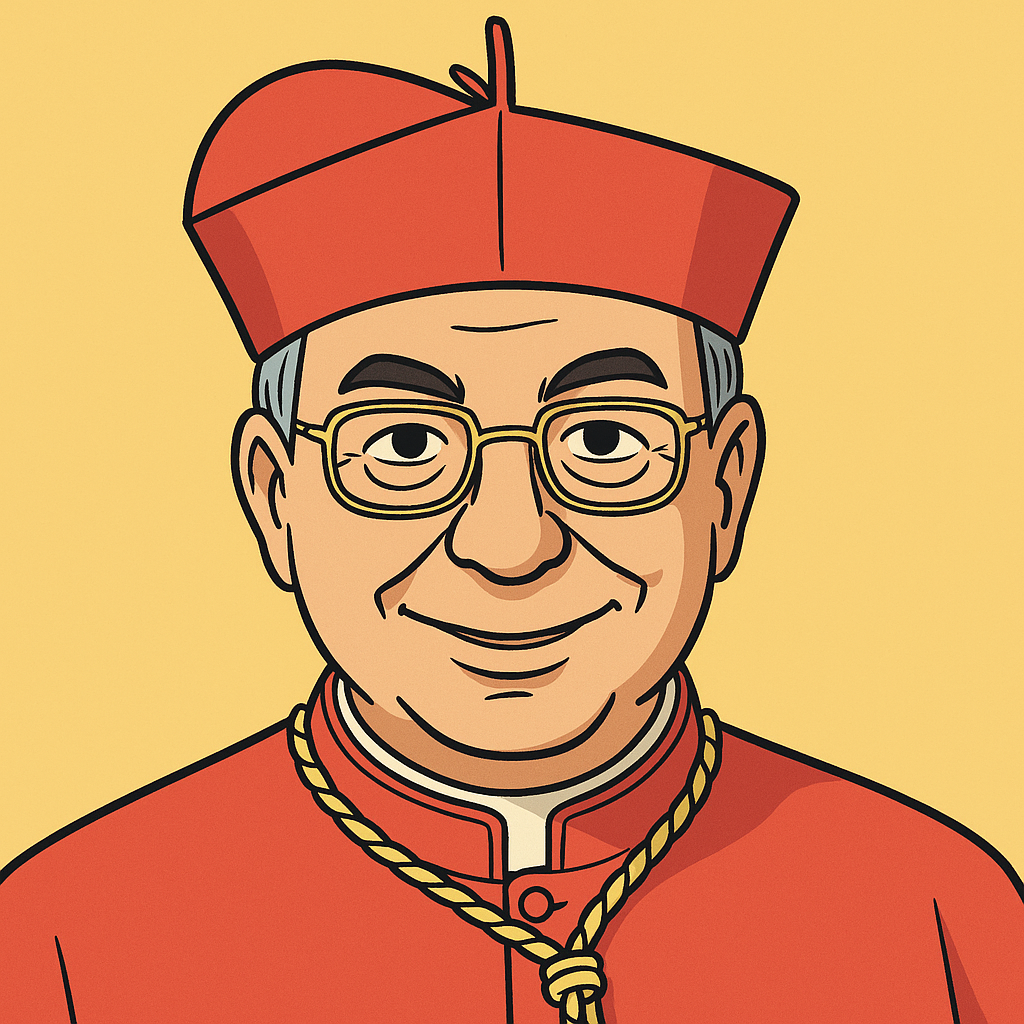
France
French cardinal, Prefect of the Supreme Tribunal of the Apostolic Signatura, known for his legal expertise and traditional doctrinal positions.

Spain
Spanish cardinal who is very conservative, nicknamed "the little Ratzinger," known for his traditionalist positions on liturgy and morality, and his vigorous defense of Catholic doctrine.

Sri Lanka
Sri Lankan cardinal with strong traditionalist positions, known for his attachment to traditional liturgy and defense of Catholic doctrine.

Germany
German cardinal, former prefect of the Congregation for the Doctrine of the Faith, known for his very conservative positions and vigorous defense of traditional doctrine.

Canada
Canadian cardinal, Archbishop Emeritus of Toronto, known for his conservative positions on issues of moral doctrine and his commitment to defending religious freedom.
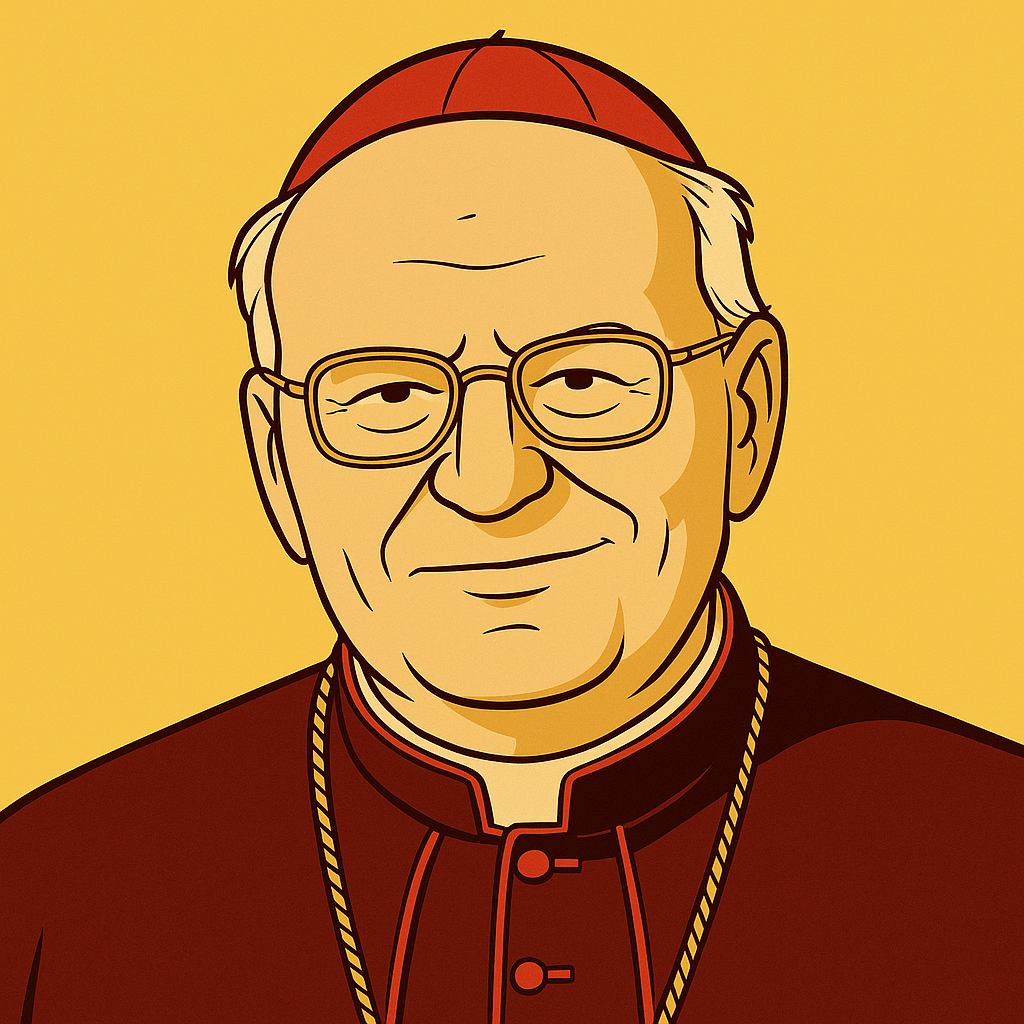
Hungary
Hungarian cardinal, Archbishop of Esztergom-Budapest, renowned canonist, known for his conservative doctrinal positions and his influential role in the Church of Central Europe.

United States
American cardinal, Archbishop of New York, known for his media charisma and balanced leadership, combining social commitment and defense of Catholic tradition and moral values.

Sri Lanka
Sri Lankan cardinal with strong traditionalist positions, known for his attachment to traditional liturgy and defense of Catholic doctrine.

France
French cardinal, Prefect of the Supreme Tribunal of the Apostolic Signatura, known for his legal expertise and traditional doctrinal positions.

Germany
German cardinal, Archbishop of Cologne, known for his conservative positions and controversial leadership, particularly in handling sexual abuse and his opposition to certain reforms.